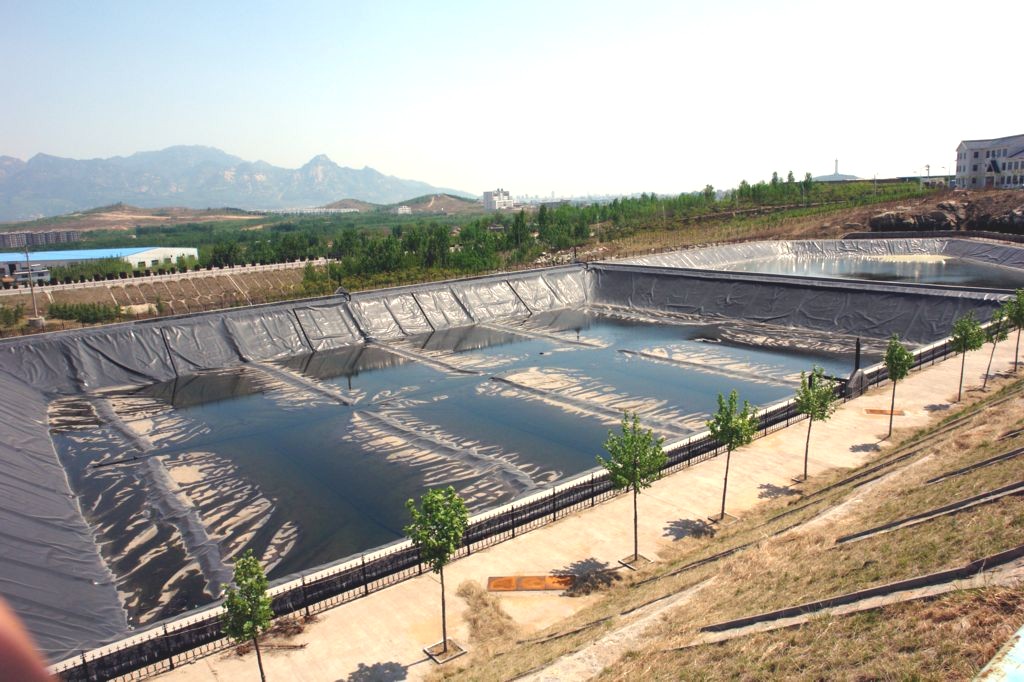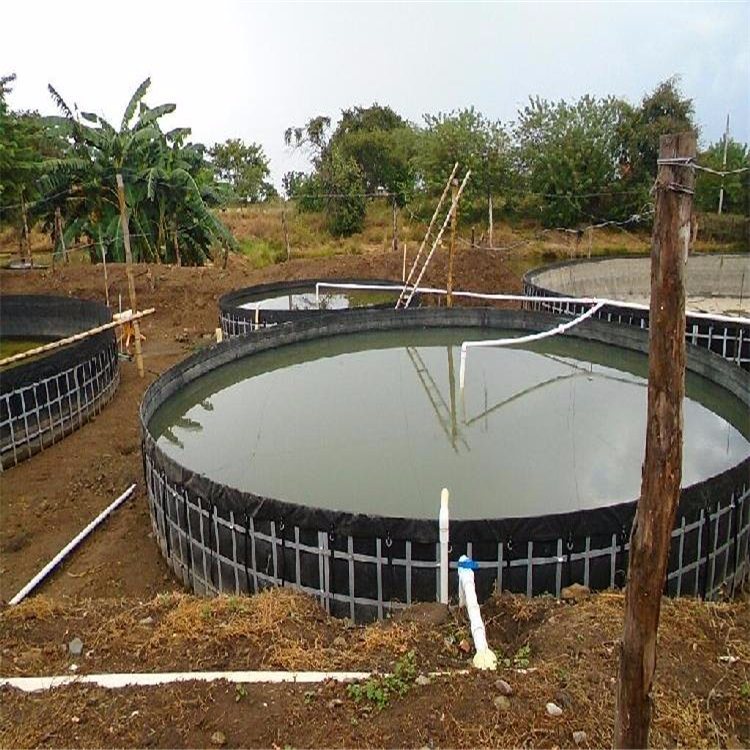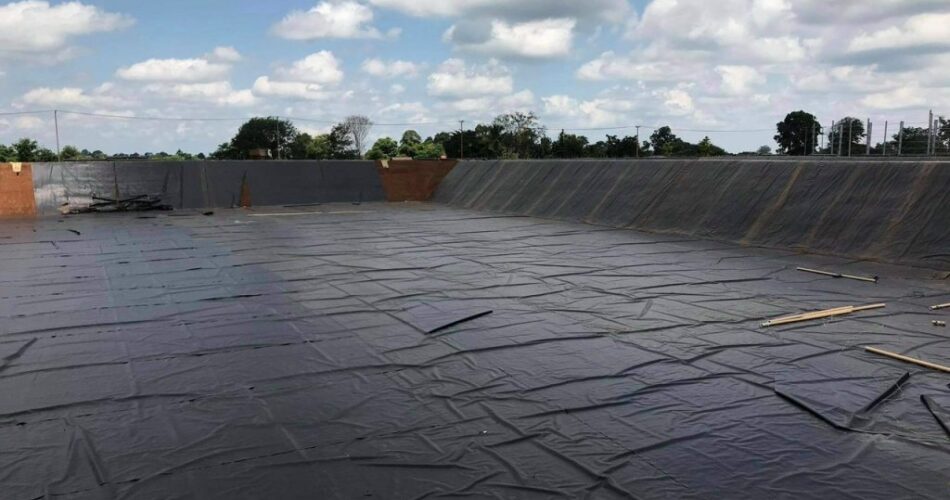In the realm of modern agriculture, ensuring reliable access to water is paramount for sustainable crop production and environmental stewardship. As water scarcity becomes an increasingly pressing issue worldwide, agricultural water storage pools equipped with geomembrane sheets emerge as indispensable solutions.
This essay explores the multifaceted reasons behind the construction of agricultural water storage pools with geomembrane sheets, highlighting their role in enhancing water management, promoting conservation, and securing agricultural productivity.
1. Mitigating Water Scarcity:
Agricultural water storage ponds, lined with geomembrane sheets, play a pivotal role in mitigating the impacts of water scarcity on crop production. By capturing and storing rainwater, runoff, and irrigation water during periods of abundance, these reservoirs ensure a reliable water supply for irrigation during dry spells, thereby reducing dependence on dwindling natural water sources.
2. Efficient Water Management, agricultural water storage pools

The utilization of geomembrane sheets in agricultural water storage pools facilitates efficient water management practices. The impermeable nature of geomembranes prevents seepage and loss of stored water, maximizing retention and utilization. Additionally, the ability to control water levels and regulate flow enables farmers to optimize irrigation schedules and minimize wastage, leading to more sustainable water use.
3. Seasonal Agricultural Water Storage Pools
Agricultural water pools with geomembrane sheets enable farmers to capture and store water during periods of excess rainfall or snowmelt for use during drier seasons. This seasonal storage capacity acts as a buffer against climatic variability, ensuring a consistent water supply for crops throughout the year and reducing vulnerability to droughts or erratic precipitation patterns.
4. Supporting Crop Diversity:
The availability of water through agricultural water storage pools fosters the cultivation of a diverse range of crops, including water-intensive varieties that may otherwise be constrained by limited water resources. This promotes crop diversity, resilience, and food security, while also enhancing economic opportunities for farmers through expanded market options.
5. Minimizing Soil Erosion, agricultural water storage pools

Agricultural water storage ponds lined with geomembrane sheets serve as effective erosion control measures. By capturing runoff and reducing surface water flow velocity, these reservoirs minimize soil erosion and sedimentation in agricultural fields, preserving soil fertility and mitigating the risk of land degradation.
6. Enhancing Environmental Sustainability:
The construction of agricultural water pools with geomembrane sheets aligns with broader efforts toward environmental sustainability. By conserving water resources, minimizing runoff and soil erosion, and promoting efficient water use, these reservoirs contribute to the preservation of ecosystems, biodiversity, and overall environmental health.
7. Drought Preparedness:
In regions prone to recurrent droughts or water shortages, agricultural water storage pools serve as vital components of drought preparedness strategies. The presence of stored water enables farmers to sustain crop production and livelihoods during extended dry periods, reducing vulnerability to the adverse impacts of climate change.
8. Facilitating Irrigation Efficiency:
Agricultural water storage ponds equipped with geomembrane sheets facilitate the adoption of efficient irrigation techniques, such as drip or micro-irrigation. By providing a reliable water source and enabling precise water delivery directly to the root zone, these reservoirs optimize irrigation efficiency, conserve water, and enhance crop yields.
9. Economic Benefits:

The construction of agricultural water storage pools with geomembrane sheets yields significant economic benefits for farmers and rural communities. Increased crop yields, enhanced crop diversity, and improved water management practices contribute to greater agricultural productivity, profitability, and resilience in the face of economic challenges.
10. Long-term Water Security:
By investing in agricultural water pond infrastructure with geomembrane sheets, farmers secure long-term water security for their operations. These reservoirs serve as valuable assets that provide a dependable water supply for years to come, safeguarding agricultural livelihoods and promoting sustainable rural development.
Conclusion: Embracing Agricultural Water Pools with Geomembrane Sheets
In conclusion, the construction of agricultural water storage pools with geomembrane sheets represents a proactive and strategic approach to addressing water scarcity, enhancing water management, and promoting agricultural sustainability. By capturing and storing water, minimizing losses, supporting crop diversity, and fostering environmental stewardship, these reservoirs play a vital role in securing water resources for agricultural production and livelihoods.
As the global demand for food and water continues to rise, the adoption of agricultural water storage infrastructure becomes increasingly imperative, underscoring the critical importance of integrating geomembrane-lined reservoirs into agricultural landscapes. Through concerted efforts and investments in water storage solutions, farmers can build resilience, adapt to climate variability, and ensure a sustainable future for agriculture and rural communities.

